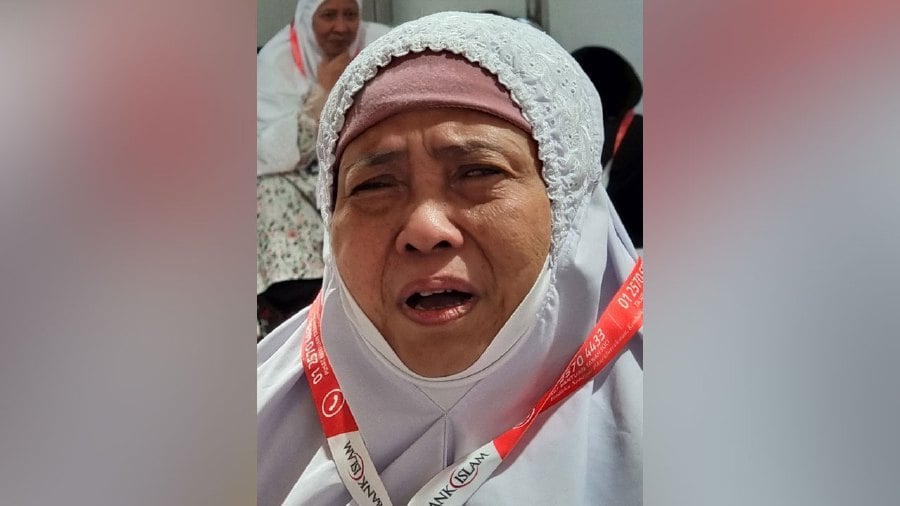MAKKAH: The images of the Kaabah and its surroundings, as well as the plains of Arafah were etched in Nor Gayah Jamhari's mind before becoming blind about 20 years ago.
She said she imagined the scenes while performing the obligatory tawaf during the umrah upon arriving in Makkah, and when she performed the wukuf in Arafah.
Now 65, Nor Gayah said she lost her vision due to retinal disease, but had never lost her desire to perform the haj.
When she was brought to Masjidil Haram and Arafah, together with her husband, she said she was overwhelmed with emotions.
"I once saw the Kaabah through pictures and after that, I could only imagine it. So, when I was at Arafah, I took the opportunity to earnestly pray.
"I prayed that Allah SWT would accept my worship.
"I know and believe that Allah will place me wherever He wants to place me. In fact, I am confident that whatever happens is by the permission of Allah and has its own wisdom," she said when met in Arafah yesterday.
Nor Gayah, who hails from Slim River in Perak, performed the wukuf through Tabung Haji's 'Inisiatif Peneman' which allows pilgrims who are unwell or forgetful to be accompanied by a Tabung Haji staff on the haj.
Nurul Hidayah, a Tabung Haji staff tasked to accompany pilgrims, said each of the staff accompanying must give guidance and assistance as best as they can.
"We know that when we become the companion, our main responsibility is to focus on the elderly pilgrims.
"It is important to ensure that they don't feel lonely when they are performing their haj, especially if they were by themselves," she added.


